Your Papers, Please
The quiet rise of digital ID — disguised as child protection
⚠️ What you’re about to read affects every Australian — not just teens. ⚠️
If we stay silent now, come December 2025 we’ll sleepwalk into a
system of surveillance, censorship and control.
Read it. Share it. And Push back — while we still can.
Know what’s coming.
Understand what’s at stake.
If you’re already nodding in agreement and aware of the dangers this bill presents, jump to part 2 for action steps the concerned public can take.
The Rise of “Online Safety”
They say it’s about keeping kids safe from social media.
But under the Online Safety (Restricted Access Systems) Bill, every internet user in Australia would need to prove their age to go online.
Not to enter a casino. Not to buy cigarettes or alcohol.
Just to search. To access information. To use social media.
YouTube. Google. Facebook, Instagram, Messaging apps, even Wikipedia — all caught in the age-gated web.
But this is Australia.
We trust our government. She'll be right, won’t it?
After all, it’s just a small inconvenience to keep kids safe.
We all deserve to be safe don’t we?
Ask yourself: is safety what this is really about?
Here’s the reality:
To stop under-16s from posting on TikTok, they’re implementing a system that surveils everyone.
This isn’t a parental control setting you can switch off in conjunction with responsible parenting. Which begs the question — who is really raising our kids?
This is a national identity checkpoint.
And it’s coming — unless we the people stop it.
We fight back en masse — starting here.
Let’s be clear: this isn’t about safety.
“Safety” has become the go-to word to shut down debate and justify overreach. Once something is labelled unsafe — or someone is labelled a threat — there’s no room left for questions. It reframes resistance as dangerous and compliance as virtue.
But who decides what’s “safe”? And safe for whom?
This isn’t safety. It’s censorship in a cardigan.
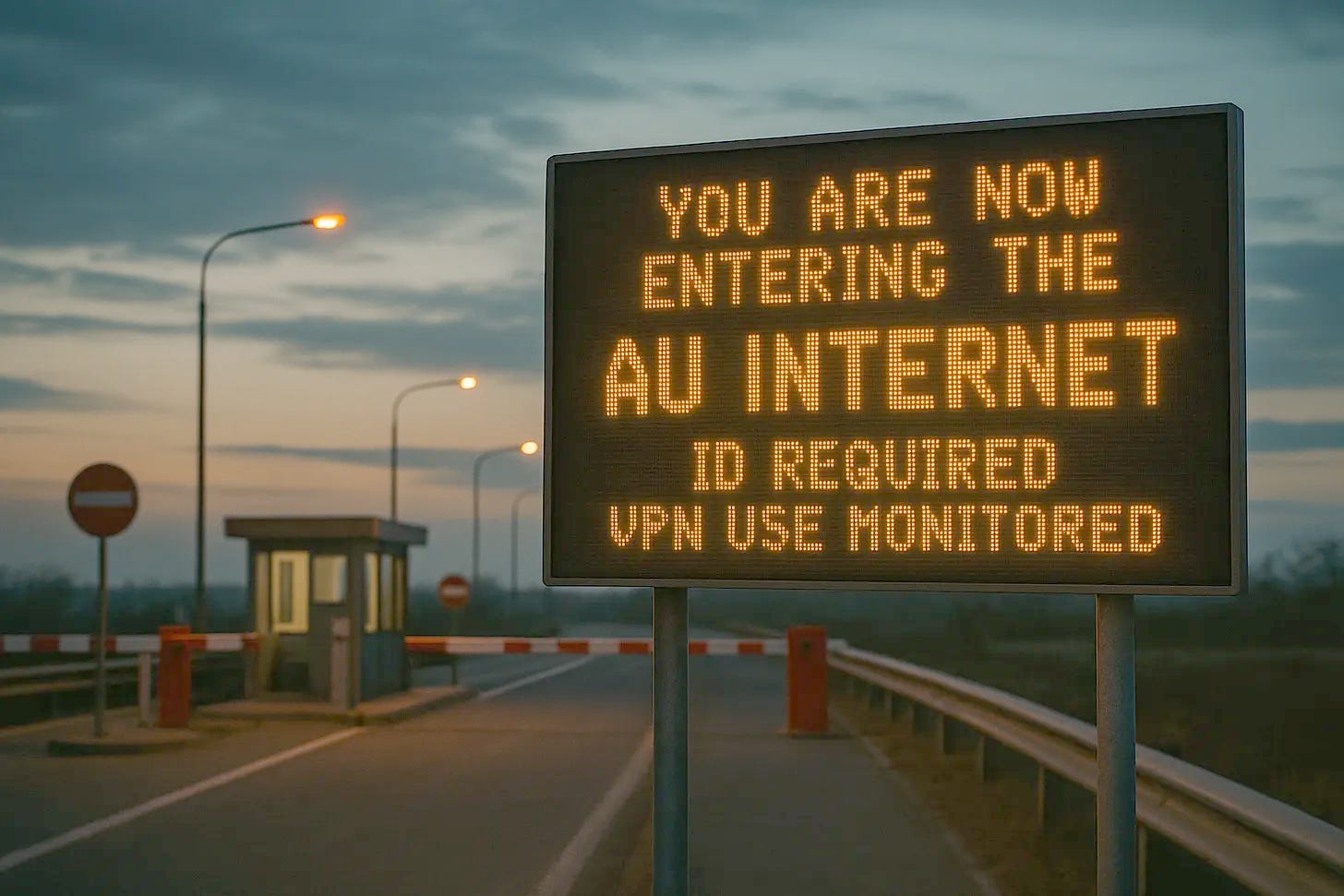
How we got here — the 2024 season cliffhanger we missed
The eSafety Commissioner — otherwise known as eKaren — is a role dreamt up by the Liberal government back in 2015 to enforce online protection for children.
Now? That same office is pushing a bill that would force every Australian to prove their age before they can search, scroll, or speak online — a system that treats anonymity not as a right, but a risk.
It was introduced in November 2024 and rushed through both houses in just one week, with the final votes cast in the dead of night, after the parliamentary year had wrapped.
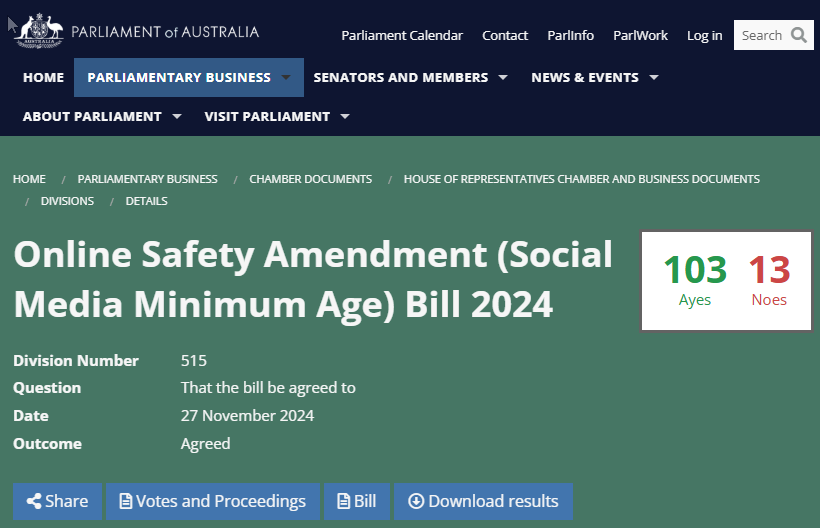
There was no fanfare. No press conference. No serious debate.
No meaningful opposition — where the hell was the opposition party?
Oh, that’s right. They don’t exist when it matters.
And they’re the ones who created this department in the first place.
[ Read the Illusion of Democracy on Ground Control for more ]
The Bill was Guillotined, as they say — buried in the final sitting week to avoid public scrutiny, then passed as MPs slipped quietly into holiday mode.
Funny thing about “democracy” — we’re the ones paying for all this.
It was a season finale of the dystopian kind — and by the time the credits rolled, it was already law.
A law which states the minimum-age rules and age-verification mechanisms must be implemented by each of the affected platforms with a deadline of December 2025.
The infrastructure of control — built under the banner of safety
No matter how it’s pitched, age verification at scale means one thing: mandatory ID.
Not for logging into your bank account — but for asking a question online.
We’re not talking about a one-time check.
We’re talking about live, persistent verification:
Upload your driver’s licence to watch a YouTube clip.
Submit to facial scans or other biometrics to prove you're old enough.
Agree to ongoing surveillance to stay logged in.
To be clear, the law doesn’t spell out the technical details — but it doesn’t take long to see where it leads. To verify age, a form of Digital ID becomes mandatory for all users of the internet.
In effect, this Bill pushes Digital ID onto every Australian — not by public consent, but by political convenience and stealth.
It’s not about keeping kids out. It’s about drawing everyone in.
Once your identity is linked to your search history, your viewing habits, your late-night curiosity — you’re no longer an anonymous citizen browsing the web.
You’re a data point in a controlled environment.
Today, the excuse is age.
Tomorrow, it could be health compliance, financial reputation — political risk.
The point is — the infrastructure will already be waiting.
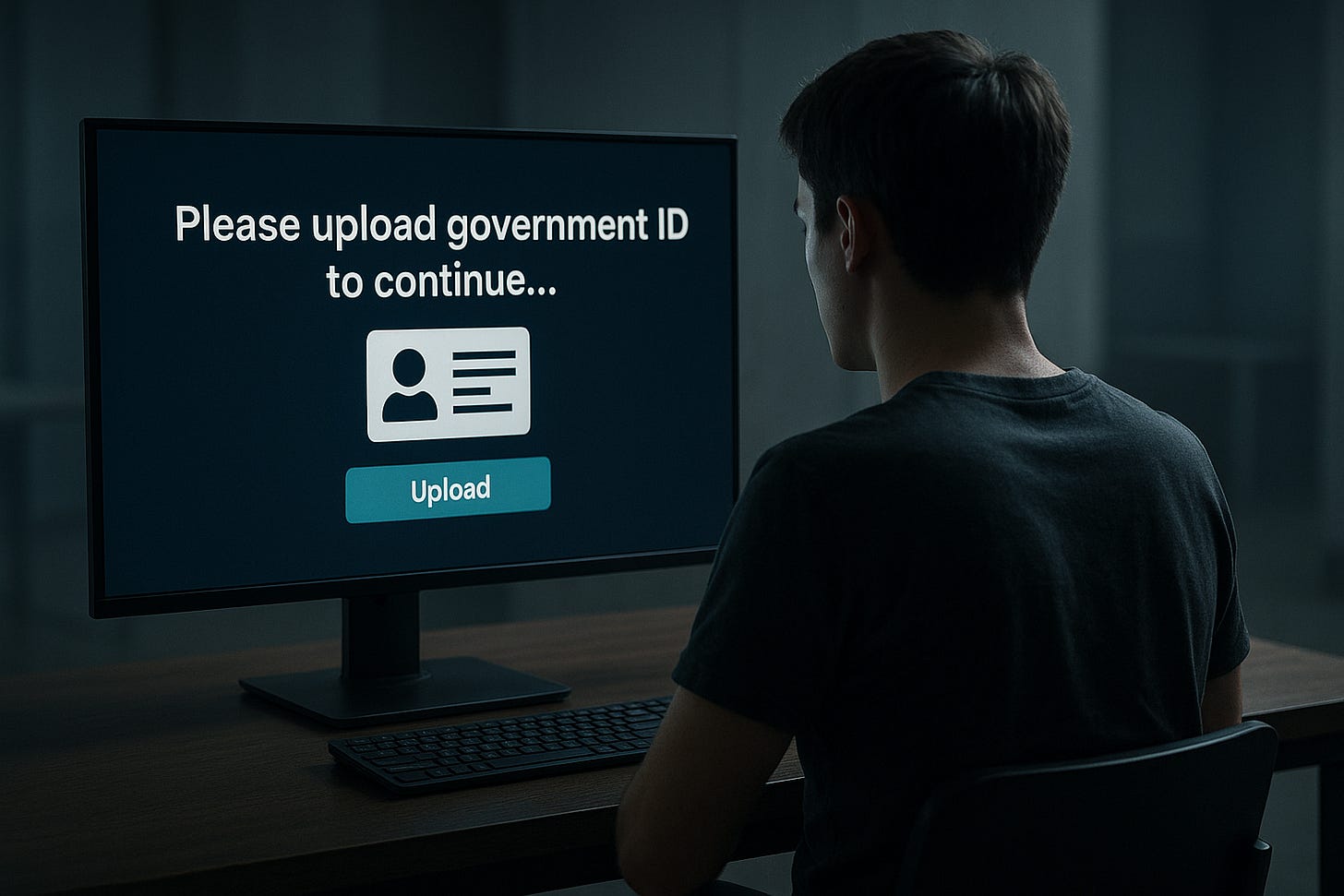
They say it’s about children. But the net is designed to catch everyone.
No platform wants to risk massive fines or jail time for letting the wrong person through the gate.
So they’ll be forced to verify everyone — blanket checks, one-size-fits-all compliance.
This isn’t targeted enforcement — it’s pre-emptive surveillance.
And to enforce it, anonymity has to die.
No more anonymous search.
No more incognito window.
No more asking the wrong question without raising the wrong flag.
It doesn’t end with “protecting” kids. It starts with them — and ends with control.
The chilling effect: obedience by design
The moment you know your activity is traceable — your behaviour changes.
You hesitate.
You avoid the odd article.
You don’t search that awkward question.
You think twice before commenting. Then maybe… you don’t comment at all.
And that’s the point.
It’s not just about surveillance. It’s about conditioning.
Not forced silence — just a steady erosion of confidence.
The slow creep of self-censorship. One click at a time.
What Fills the Void — when dissenting voices disappear?
We talk about protecting kids from “harmful content” — but what about the harms of withholding information altogether?
With print media in decline and libraries turning into museums, the internet and particularly social media, has become the primary window to the world.
Cut off that access — unless it’s government-approved — and what’s left?
Mainstream TV programming.
State-sanctioned curriculum.
Propaganda, dressed up as education.
All carefully curated narratives — heavy on ideology and light on truth.
In a world where dissenting voices live online, removing that access doesn’t protect kids — it conditions them.
What we’ll end up with is generations raised on propaganda.
And then — just two years later at 18 — we expect them to vote.
No — even worse — in Australia we mandate their vote, or risk a fine.
On what objective information would these opinions be formed?
What critical thinking, what counterpoints, what real-world experience did they ever receive?
We're not raising citizens capable of critical thought.
We're raising citizens who agree — creating a crisis of consensus.
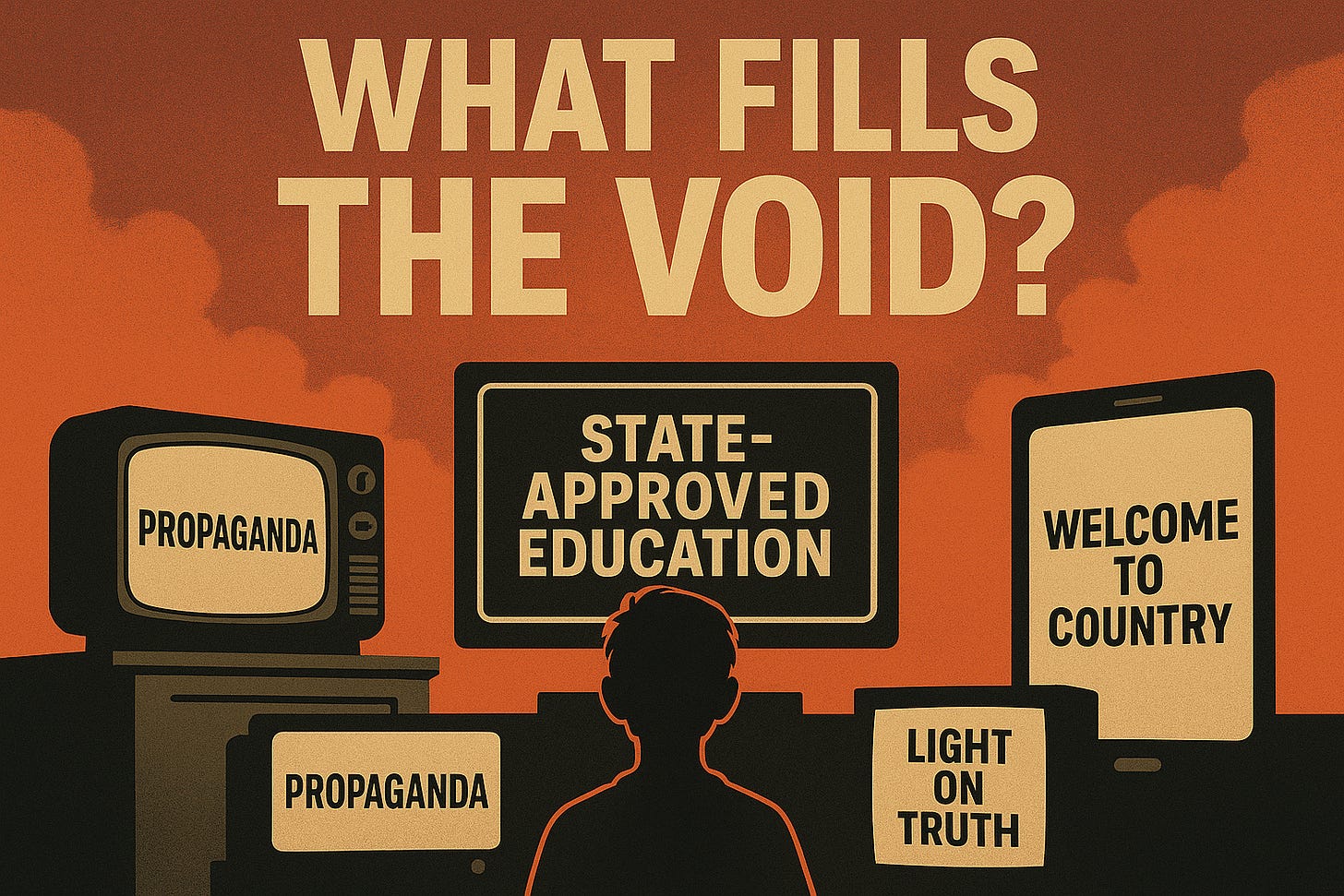
This isn’t speculation — it’s already happening
The UK has already passed its version of the Online Safety Bill.
And in just weeks the consequences are rolling in fast.
Millions of daily identity checks.
A surge in VPN use as people try to claw back basic privacy.
And prosecutions — real jail time — for speech that strays too far from government-approved lines.
People have been charged for Facebook posts that question immigration.
Others for criticising public institutions.
And behind it all: a growing digital infrastructure that links your words to your legal identity.
Another side effect? Blatant censorship.
Harmful content is a term so vague, so elastic, that platforms are now over-censor by default — not out of moral duty, but fear of entanglement.
When a breach could cost up to 10% of global turnover, is it any wonder they’re pulling the plug on anything even mildly controversial?
They were promised safety too.
What they got was surveillance — and government intrusion into their daily lives.
Australia still has a choice — but not for long
The deadline for implementation is set for December 2025.
If this system goes ahead, you will need to prove who you are — not just to speak, but to search and to stay informed.
This Bill isn’t about keeping teens off social media. It’s about building the gate, issuing the passes, and deciding who gets to enter the public square.
And it doesn’t stop at surveillance.
It reshapes what children know and what they can learn.
It conditions how young voters think.
It narrows the spectrum of thought until consensus becomes the only acceptable answer.
Once built, it won’t be dismantled.
Once normalised, it won’t be questioned.
So, the real question isn’t whether this proposal goes too far.
It’s whether we’re willing to live in a country where access to information is permission-based — and the next generation never knew it was any other way.
Do you really think they could pass a Digital ID law through the front door? Through honest debate? With public consent?
Of course not. And they know it.
Back in 1987, the government tried to introduce the Australia Card via referendum
— and the public gave them a resounding “no.”
Different decade, same agenda.
And this time, they’re trying to sneak it in through the back door.
They didn’t ask.
They didn’t explain.
And they sure as hell didn’t get consent.
So ask yourself:
Do you still trust our government?
Because “She’ll be right, mate” is for suckers.
And I refuse to believe Australia was built by suckers.
For those ready to act, jump to part 2 for the tools to do so.
Signal Boost
They’re counting on you staying quiet — but you don’t have to play along.
If this post raises your blood pressure, good. That means you're still awake.
Share it — not for clicks, but to cut through the noise.
Talk to your friends. Your family. Your pets. And definitely your MP.
We either raise the alarm now — or live with the serious consequences later.
Still with me? Looking for a little hope?
There is some.
Despite the grim trajectory, this isn’t a done deal yet. There are serious uphill battles ahead of implementation — and they’re worth watching closely.
Technical limitations
The framework they’re proposing is deeply flawed and technically complex. Live, persistent age verification at scale isn’t just hard — it’s borderline unworkable. Especially without turning the internet into a biometric police state.
Platform pushback
Silicon Valley isn’t lining up to mutilate its business for a virtue-signalling backwater like Australia. Expect resistance. Some may threaten withdrawal — and a few may even follow through — but that’ll be a last resort.
The Trump Effect
Wherever you sit on the TDS scale, one thing’s clear: Trump backs free speech. Strongly.
Don’t be surprised if a second Trump administration offers tariff or tech incentives tied to platform neutrality — or applies pressure in some way to protect speech and limit censorship. It’s certainly not out of the question.
And as for Albo…
You’ve got to wonder why our slippery little socialist hasn’t met with Trump yet. It’s not just about tariffs — it’s AUKUS, energy, security, trade.
If our ties with what’s meant to be our strongest ally are this frosty, then Australia’s in more trouble than we think.
But here’s the thing — none of this gets you off the hook.
Hope is not a substitute for action. Platform resistance, technical roadblocks, even international pressure — they mean nothing if there’s silence at home.
The pushback has to come from us — the people this government is meant to serve.
And it starts when we stop waiting for permission.
Because if we don’t shake off the “she’ll be right” attitude and make noise now, they’ll keep coming — and next time, they won’t even pretend to ask.
For those ready to act, jump to part 2 for the tools to do so.
Other Voices Raising the Alarm
You don’t have to take my word for it.
Senator Malcolm Roberts has been one of the few consistent voices in Parliament warning Australians about the deeper agenda behind this Bill. While others play politics, he's been calling it what it is — state censorship dressed up as child safety.
Comms Check
Seen In Print
The Mount Barker Courier published a condensed version of this content as a Letter to the Editor on 13th August 2025.
Disclaimer:
All views expressed are the personal views of Darren Kelly and reflect ongoing community engagement. They do not represent the views of any official role or organisation.


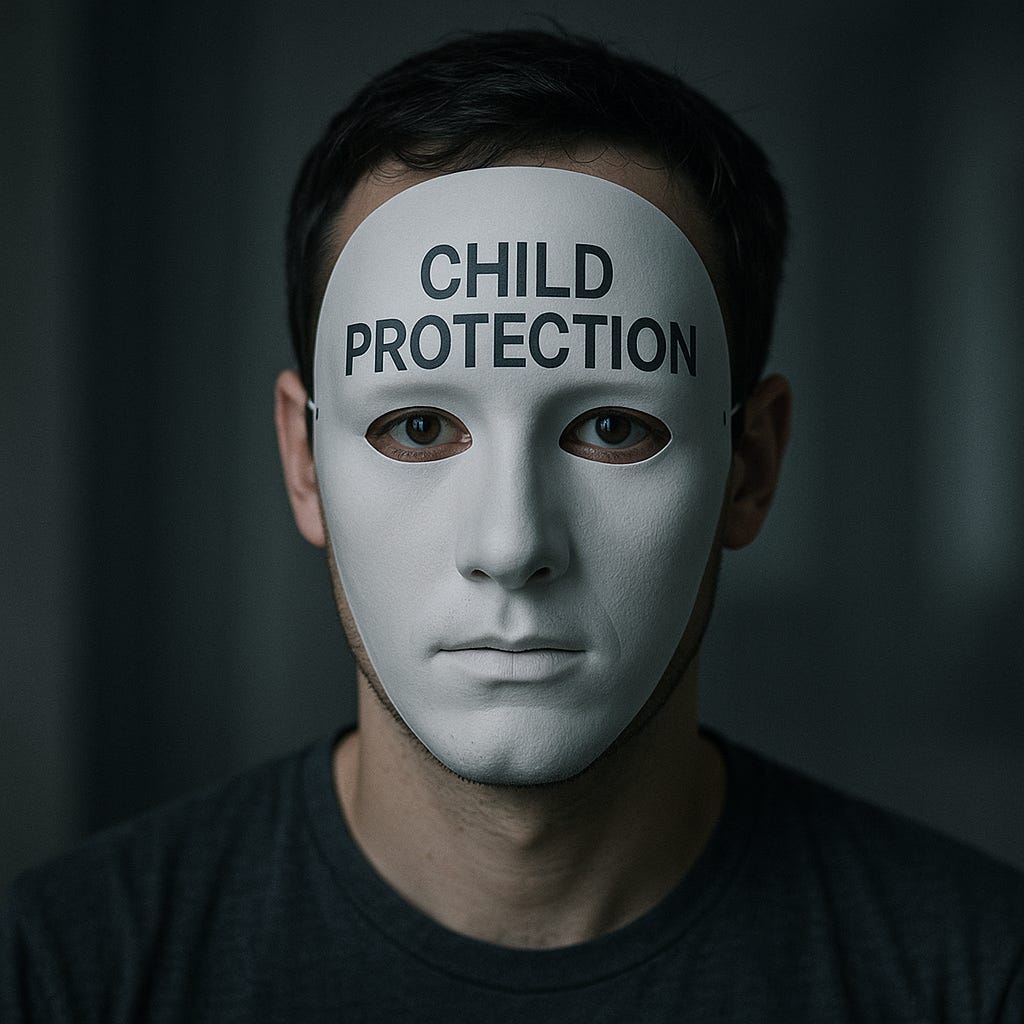
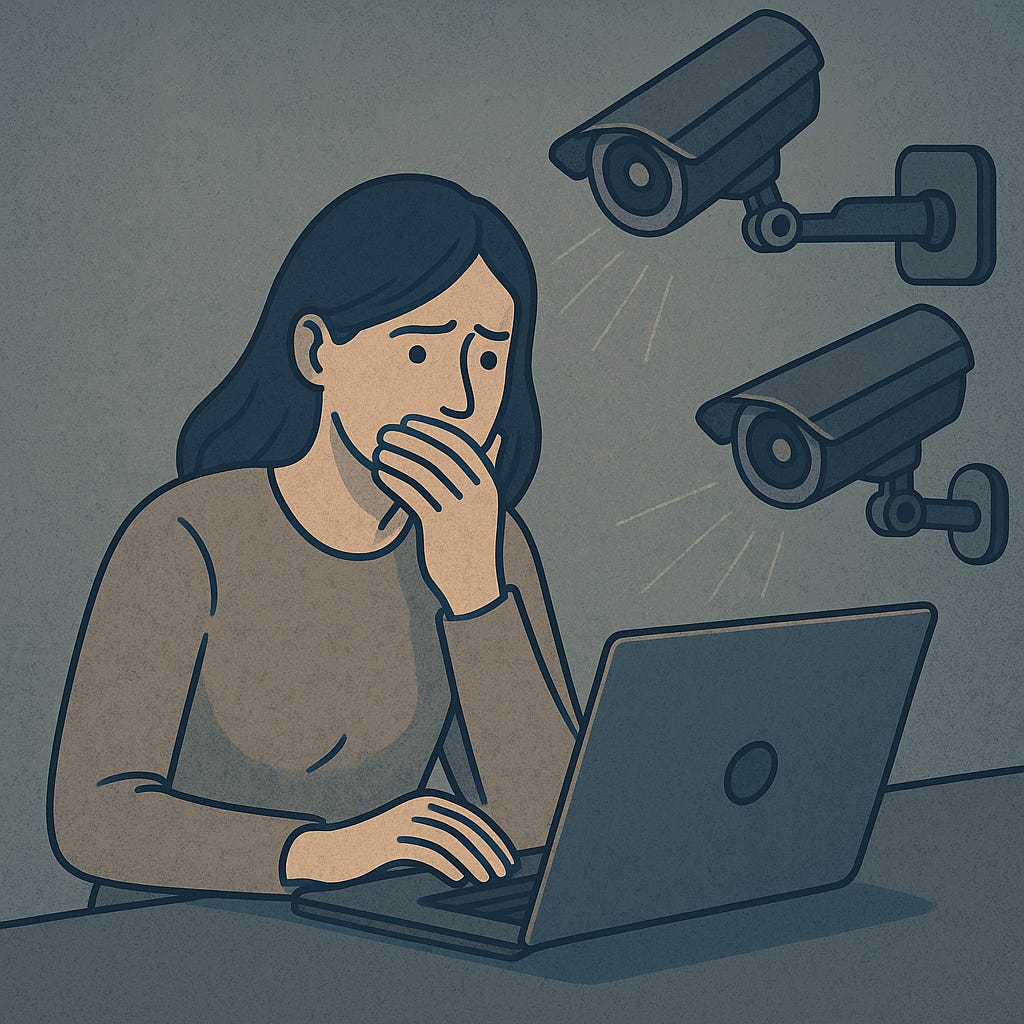
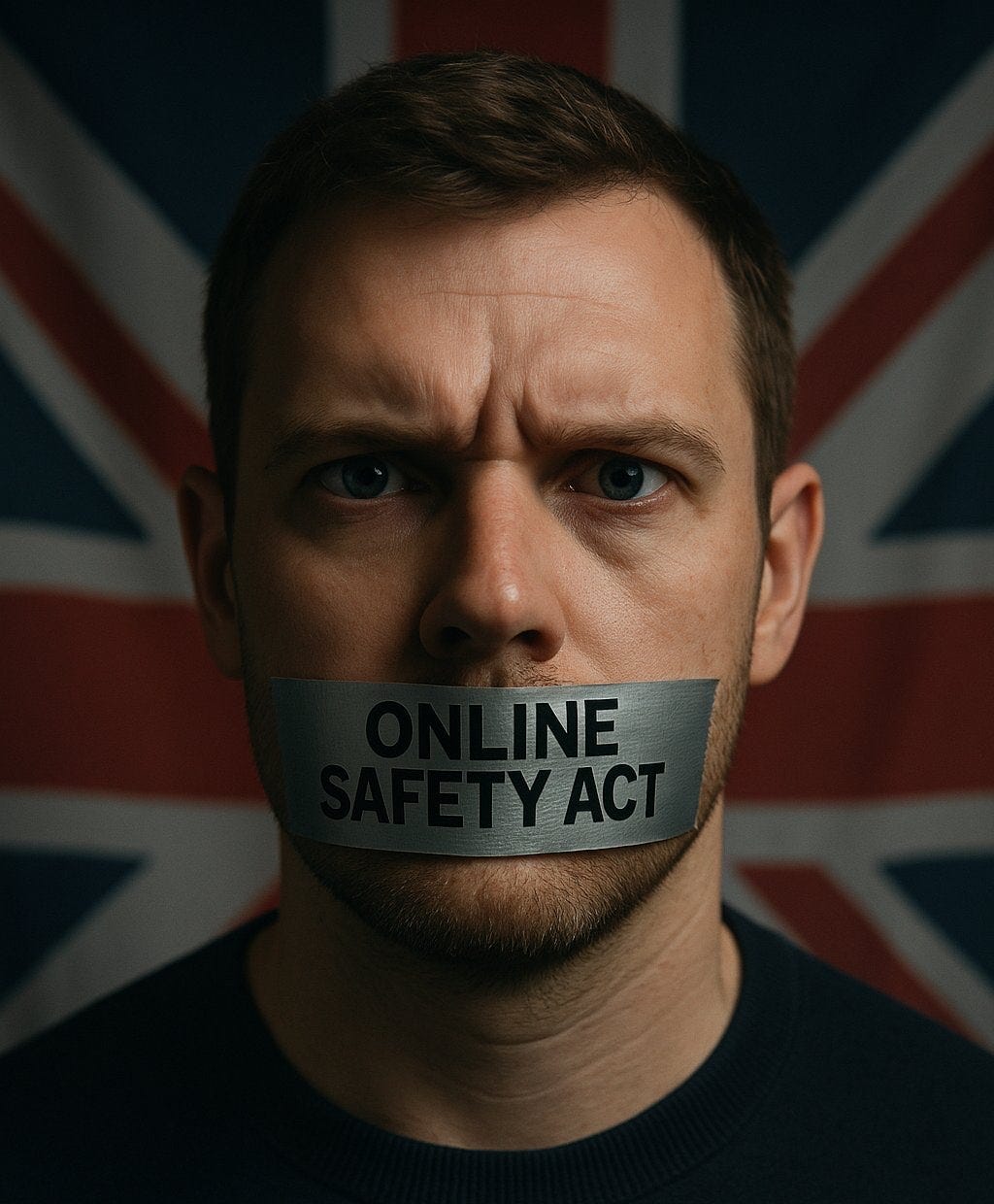
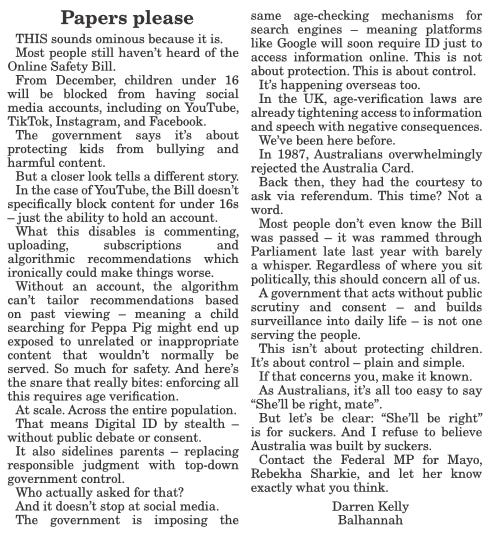
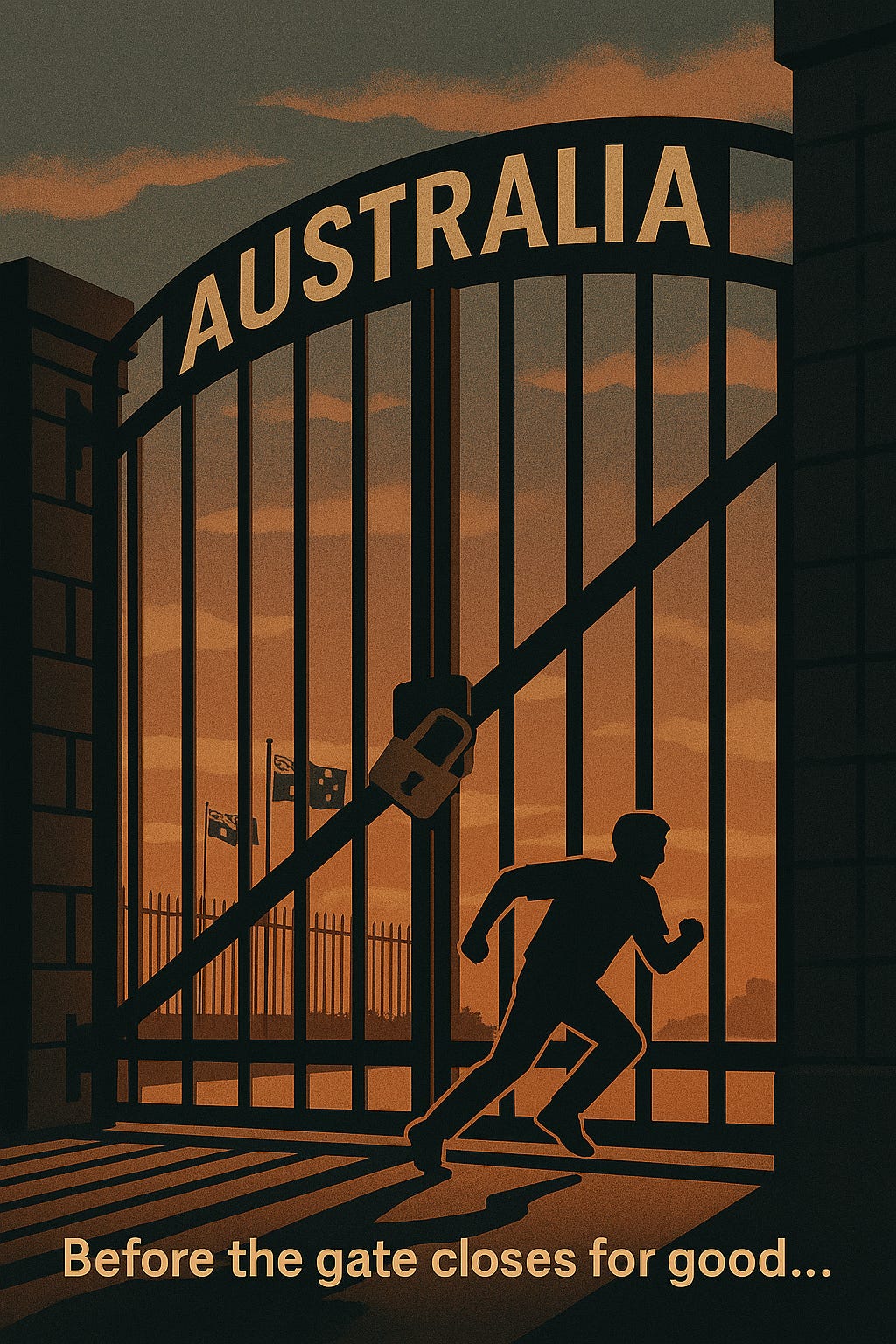
Another book that would be worth reading is ÉTIENNE De La BOETIE 2 called to see the cage is to leave it. He’s also written a number of other books. If you think about what’s going through n in our government NDA’s commercial in confidence , decisions made behind closed doors and presented as deals done, no public or parliamentary discussion it’s time obscene. Another point, if you have a myGov account they now want facial recognition or thumbprint to access your own data. And I remember Morrison saying our collective data will be loaded into the cloud. I’m old enough to have voted in the 1974 referendum, I remember two of the four questions. One was to have an Australia card the other was did we want LGA’ s represented at federal level. All for referendum questions were voted down , we now have LGA’s represented at federal level and we’re already well on the way to national biometric identification, tracking and tracking and tracing.
We should expect nothing less from a government that clearly revealed itself as our enemy during the Convid1984 coup and deadly vax deployment.